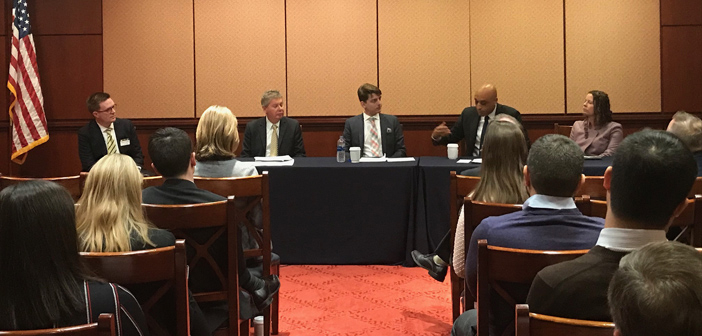The Coalition for Future Mobility, which comprises 50 different groups representing American seniors, people with disabilities, safety, the environment, and the automotive and technology industries, has called on US Congress to pass legislation that will assure the safe testing and deployment of autonomous vehicles.
Leaders of the coalition told Capitol Hill staff at a briefing that AVs may help save lives, increase independence among seniors and those with mobility issues, reduce greenhouse gas emissions and spur innovation.
According to US Government data, 94-96% of all crashes are caused by human choice or error. AV technology could help save lives by preventing many crashes and dramatically reducing injuries and fatalities on our roadways, according to the coalition.
AVs also provide the opportunity to increase the independence and mobility of those who cannot drive, including veterans with disabilities, the blind and older Americans; reduce greenhouse gases from needless idling; reduce congestion; and spur US innovation.
“Autonomous vehicles have the potential to dramatically improve travel options for millions of blind Americans as well as all other Americans who are not able to drive,” said John Paré, executive director for advocacy and policy at the National Federation of the Blind. “We look forward to the day when we are able to use autonomous vehicles to get to school, to work, or to generally improve our ability to live independent lives.”
With no federal regulations specifically governing highly automated vehicles, more than 30 states and municipalities have passed rules for self-driving vehicles, creating a patchwork of regulations.
“Auto makers, suppliers and technology companies are investing significant resources into the development of highly automated vehicles in the USA to improve the safety and efficiency of our transportation system and to provide access to mobility to people who cannot currently drive,” said Hilary Cain, director, technology and innovation policy at Toyota North America.
“However, there is not currently a path to widespread deployment of driverless vehicles in this country. Federal legislation is needed to establish a clear plan and timeline for addressing these existing regulatory barriers and for implementing a regulatory framework that will provide for the safe and responsible deployment of this technology going forward.”


